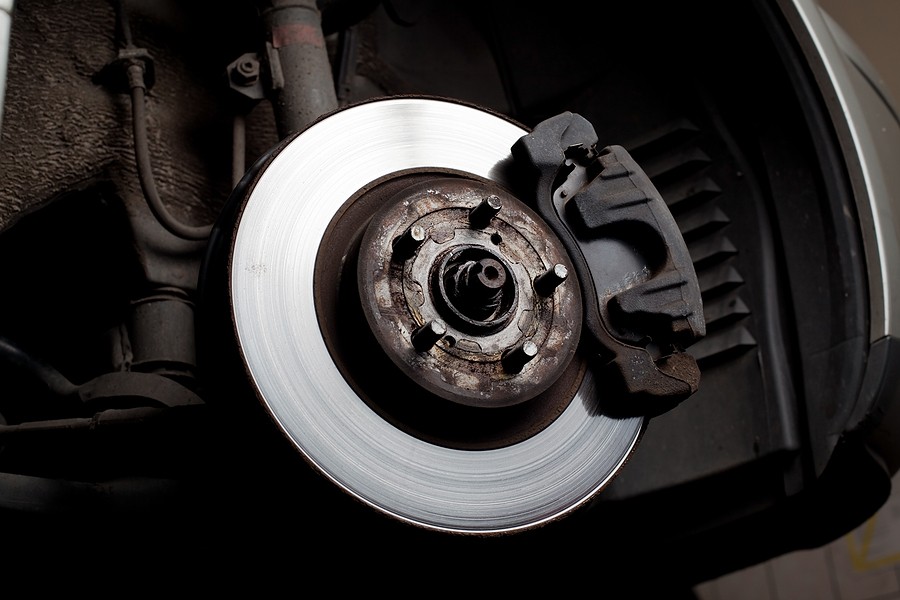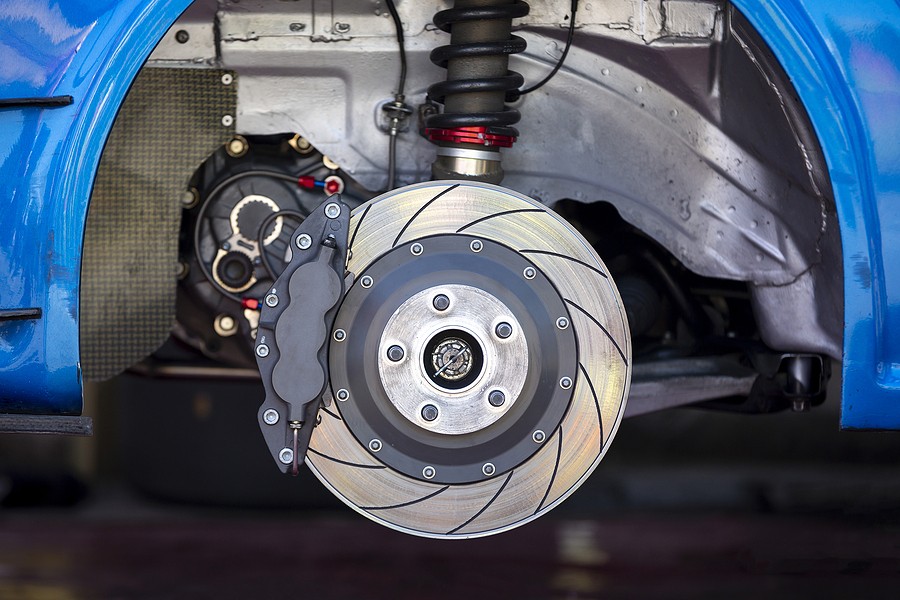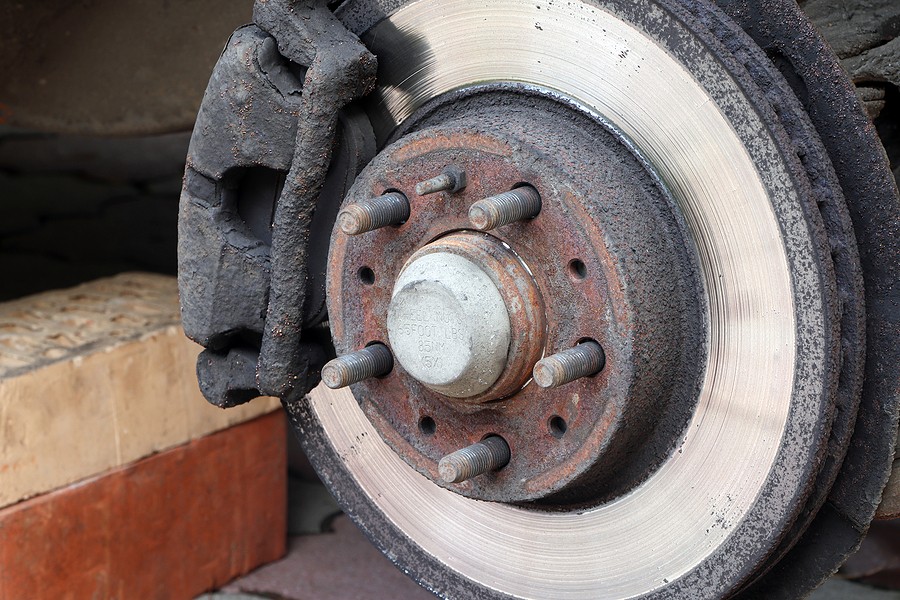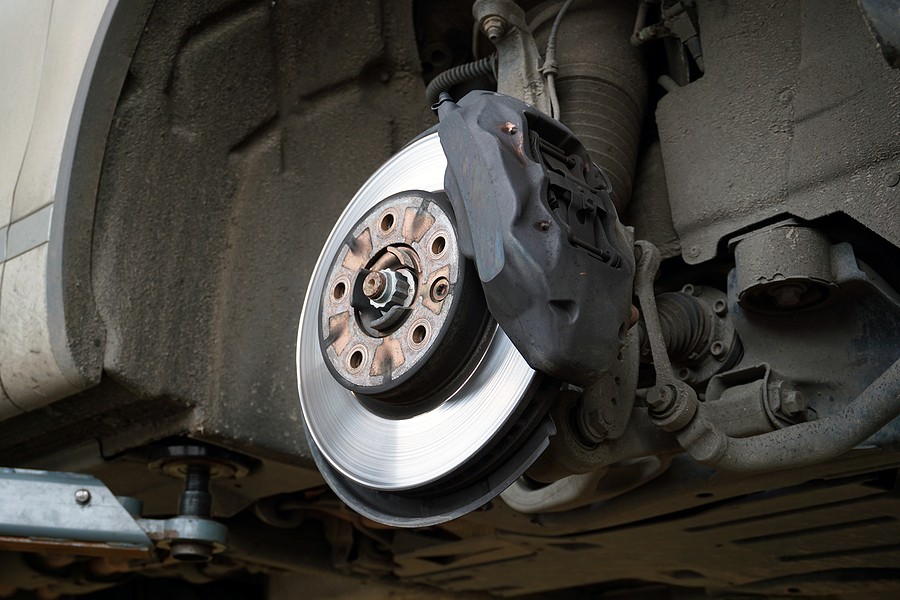“Why are my brakes squealing?” It could be a problem with one of the followings:
- Issues without brake pads
- Problems with dust or debris
- Troubles related to moisture
- Driving habits
- Issues with the metallic components
- Insufficient lubrication
The braking system is one of the most critical systems in your vehicles because it affects your safety. Any minor issue in the brakes might lead to catastrophic outcomes that could impact your life and the life of other people driving around you.
One of the very common situations you might get and ask yourself is, “Why are my brakes squealing?” Hearing squealing noises coming from the brake system might be scary because it could be related to a very complicated problem that indicates premature brake damage.
Understanding the main causes for the squealing noises is extremely important because it helps you narrow down the potential culprits and get your vehicle fixed before running out of time.
This article provides you with six potential reasons for the squealing noises that could come from your braking system. Once you check on each of them, you should be able to resolve your problem and get your vehicle to work without any issues.

Why are my brakes squealing? Six potential reasons
When your vehicle makes weird noises, it could be a warning sign that you're dealing with an important internal problem. Some of these noises might be linked to simple issues and can be resolved quickly. However, there are instances where the noise is might indicate a severe problem that requires immediate attention.
One of the very common noises you might experience is the squealing noise coming out of the braking system. According to automotive experts, there are six common reasons for the squealing noise from the braking system, and there are summarized in the list below:
1. Issues without brake pads
The first and most obvious reason for the squealing noise coming out of the braking system is when you have an issue with the brake pads. The brake pads are responsible for creating friction and making your vehicle slow down and then stop.
Overtime reviews, these brake pads might lose some of their thickness, and if you get to a point where this thickness is not enough, that's when you start dealing with the squealing noises. Of course, it is a strong indication that you should replace the brake pads immediately. Otherwise, you might not be able to slow down your car and stop it in cases of emergencies.
Note that while you'll have to replace the brake pads in most scenarios, if you confirm there is the culprit, there are some instances where a simple issue might cause a temporary squealing noise. For example, if there is a layer of rust sitting on the brake pads, you will start hearing some screech noises every time you hit the brakes.
However, this can easily go away after applying a couple of brakes as you drive your car. If you realize that the noise didn't go away, your problem is most likely related to a bigger issue where you have to replace the brake pads.
2. Problems with dust or debris
Sometimes minor issues like a lot of dust or debris sitting on the brake pads or rotors might cause squealing noises. On the amount of dust and debris, you might be able to resolve the issue by applying the brakes multiple times to stop the noise.
However, if your vehicle was sitting for a long time and the rust or debris stuck the brake pads, you might use some simple tricks by sending out layers of these brake pads to get rid of the dust and debris. Keep in mind that if the brake pad does not have enough thickness, you won't be able to send it out because you will eventually get to the metal components where the brake pads become ineffective and will not perform properly.
Therefore, your mechanic needs to take a closer look at the brake pads and see if there's a chance of sending them or not. Otherwise, it's more likely that you'll have to replace the brake pads.
3. Troubles related to moisture
In many situations, the weird noises of your car might be related to natural issues that can be resolved over time. For example, you might wake up in the morning and try to start your car and then apply the brake pads to realize that it's making a squealing noise.
You should not panic because you'll need to step back and check whether there was a lot of moisture overnight or if it rained a lot, or probably if the vehicle was sitting in the snow. If that's the case, allow your car to run, and this will go away as you drive your car and it gets hotter.
4. Driving habits
Automotive experts always recommend being gentle when driving your car. You must implement the right methods and approaches whenever using your vehicle’s components.
Many bad habits can lead to significant car problems, not necessarily immediately but probably overtime. For example, since the brake pads are the components that you interact with continuously, your driving habits might impact the health of these brake pads.
In general, you recommended applying the brake pads properly and never slamming them or performing sudden stops unless it's an emergency or it's needed. Any improper usage of the brake pads reduces the lifetime of these brake pads and requires you to pay unnecessary repairs on things that could last longer than what you experienced.
We highly encourage you to review some of the common recommendations on using the brake pads properly to extend their lifetime. These recommendations are very helpful, and you'll see a huge difference in the performance of your car.
5. Issues with the metallic components
In some instances, the brake pad material might make squealing noises. Have you ever replaced the brake pads and tried to drive your car to realize that it's making a squealing noise? That is very common, especially if driving a vehicle with semi-metallic brake pads.
In brake pads, many materials can be used. For example, you might see organic, ceramic, semi-metallic, and other brake pads.
They're designed from about 30 to 65% of metals using semi-metallic brake pads. These metals could be copper, steel, iron, or others. Once these metals interact with the rotor, hearing these weird squealing noises is not surprising. Well, but what's more surprising is that if you continuously hear these noises, they never go away as you drive your car.
What's normal is when you continue driving this vehicle, the metallic brake pads will wear out a little bit until they get to a point where they stop making the squealing noises. Therefore, you'd better monitor your brake pads' behavior. If you did not see any improvement in the squealing noises, that's when you have to consult your mechanic to confirm that the issue is not happening from improper solution or anything else.
6. Insufficient lubrication
Finally, insufficient lubrication might be a strong reason for causing the squealing noises. Remember that we said that the brake pads consist of a lot of interacting moving components and these components expect a specific level of lubrication. Otherwise, they will interact with each other damn Grint against each other, causing some friction that could result in many issues.
Your vehicle requires brake oil or brake fluid to lubricate it continuously. Failing to have the proper amount and quality of brake fluid leads to brake overheating, making your driving very dangerous and leading you to get involved in critical situations that might impact their safety.
You must inspect this brake Floyd between now and then and follow what's recommended in your vehicle's owner's manual. In addition, since this fluid is expected to be breakdown over time, you must check with the manual about when to flush the brake pads because at some point in time, the fluid will not be able to lubricate the brake pads properly, and it will require replacement.

How much does it cost to fix the squealing brakes?
Depending on the root problem, repair costs can differ significantly, and it also differs depending on your vehicle's type and location where you get the job done.
For instance, a general brake inspection requires somewhere between $88 and $111.
If we want to focus on the parts costs, you should expect about $300 to replace the brake pads on the same axle. This price increases if you're looking to replace the rotors because it might approach $400.
Keep in mind that all these numbers differ significantly if you're driving a luxury car. Also, deciding to replace the brake pads yourself versus at a dealership makes a huge difference in how much you'll pay for fixing the squealing noises.
Since you're dealing with a very sensitive component that has to do with your safety, it is always recommended that you get a professional service to replace them so you don't mess up the vehicle and get to a point where you can't stop your car in cases of emergencies.
Many drivers of luxury cars still get their brake pads replaced at a dealership, although labor cost is much higher than independent shops. This is because they don't want to have any chances of mistakes that could lead to significant problems in their vehicles.
Keep in mind that there are a lot of great mechanics in small independent shops. Still, you might need to go to a dealership for certain mechanical problems at the dealership. The mechanics are very familiar with your vehicle's type. They know exactly where the problem could be and what needs to be done.
Can I drive with squealing brake pads?
It depends. Confirm that the problem is a minor issue related to probably a thin layer of rust sitting on the brake pads or probably to overnight moisture. It shouldn't be a problem to continue driving your car with squealing noise is your new pick up; on the other hand, if you confirm that the issue has to do with a major problem like bad brake pads or others, you should never continue driving your car because you put your life at risk and the left other people at risk as well.
Keep in mind that it can be hard to say what are your problem is minor or major, and that's why in most scenarios, you should consult your mechanic immediately whenever you notice the squealing noises to confirm that you are on the safe side. There's nothing hidden you can't detect.
Your mechanic should have the right mechanical experience to determine whether these noises are related to a big issue or are just going to go away after a couple of bricks applications.

Final thoughts
Whenever you hear any weird noises coming from your car, you must take it seriously because it is a way for your vehicle to communicate with you about internal issues. For example, squealing brakes is a very common situation related to a variety of internal problems in the braking system.
If you've ever asked yourself, “Why are my brakes squealing?” Then you're most likely dealing with a problem with the brake pads, an issue with night moisture, troubles with insufficient lubrication, and more.
Remember that brake pads problems range significantly from very minor to very severe. If you got to a point where your brakes problems require a lot of repairs and high repair costs, you should consider whether it's the right time to sell your vehicle and buy a better one. If you're looking for a good buyer to purchase your vehicle considering its problems, cash cars buyer is always here to help!
Cash Cars Buyer is one of the top-rated car removal companies in the nation that guarantees to pay you the top dollars and provide you with free towing despite your living location around the United States.
Our process is very straightforward and doesn't take more than a couple of days to get your car removed safely and for the most money.
All it takes you is to:
- Describe your car’s type and condition
- Receive our instant free quote
- Accept the quote
- Get your car removed and receive your cash payment on the spot!
To learn more about our process and our teen, you can reach out to us by calling us at (773) 791-4363 or visiting our home page click on the free instant online offer.



